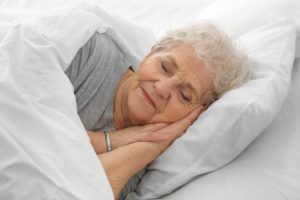
Getting enough sleep is important for everyone, but it is especially crucial for older adults. Unfortunately, many older adults have a hard time getting enough sleep due to a variety of factors such as insomnia and aches and pains that make it difficult for them to fall and stay asleep.
If you are an older person who has trouble sleeping or you know someone in this situation, here are seven sleep tips for the elderly designed to help you get better rest.
Get the right mattress
If you are an older person, there’s a greater likelihood that your aches and pains could make it difficult for you to fall asleep. An uncomfortable mattress can worsen these problems, so it is essential to get a bed that helps alleviate these aches and pains. As a result, you should invest in a mattress that is comfortable and supportive enough for you so that you can sleep soundly at night.
Keep a consistent sleep schedule
A consistent sleep schedule can go a long way toward helping you get the rest you need. You should go to bed and wake up at the same time every day, even on weekends.
To help you stack on track, you will probably need to use an alarm at first. However, over time, your body should train itself to feel tired and wake up at your regular bedtime and wake-up time.
Avoid caffeine late in the day
Another helpful tip for improved sleep is to avoid caffeine late in the day. Caffeine is a stimulant, which means that it can prevent you from falling asleep hours after consuming it.
A cup of coffee in the morning is fine, but steer clear of having caffeine as an afternoon pick-me-up. Instead, if you need an energy boost, try to splash some cold water on your face or go out for a walk.
Limit screen time before bed
If your bedtime routine includes sitting in front of the TV or computer, then you may need to adjust this habit. Watching television or using a computer close to bedtime can be stimulating and keep you from falling asleep.
The blue light from these tech devices can suppress melatonin production. Melatonin is a critical sleep-inducing hormone that is triggered by light. While this does not mean you have to avoid screen time altogether in the evenings, you should plan to turn off your tech devices at least an hour or half-hour before your scheduled bedtime.
Create a comfortable sleeping environment
To get better sleep, you need to create a cozy and comfortable sleeping environment. Invest in soft sheets and blankets, and make sure your room is at a cool temperature. If the room is too warm, it could make it harder to doze off, or you might wake up from overheating in the middle of the night.
Establish a relaxing nightly routine
As mentioned earlier, you should avoid screen time right before bed. However, you can replace it with a relaxing nighttime routine that’s screen-free. By helping yourself wind down, you should fall asleep easier.
A healthy, calming bedtime routine might include taking a warm bath or shower, reading your favorite book, or drinking some decaf tea.
Get regular exercise during the day
Regular exercise during the day should also improve your sleep quality at night. Exercise is a natural stress reliever that releases endorphins in the body, making you happy and relaxed. Try to exercise for at least 30 minutes each day, preferably early in the morning or later in the afternoon, so it does not interfere with your bedtime routine.
Conclusion
If you are an elderly person who is having trouble sleeping, try incorporating these tips into your daily routine. These helpful sleep tips include buying a comfortable mattress, maintaining a consistent sleep schedule, not drinking caffeine in the afternoon or evening, cutting back on screen time, creating a relaxing sleep environment, establishing a calming nightly routine, and exercising regularly. You may have to get used to incorporating some of these changes, but the good news is that you will lead a much healthier life by getting more quality sleep.